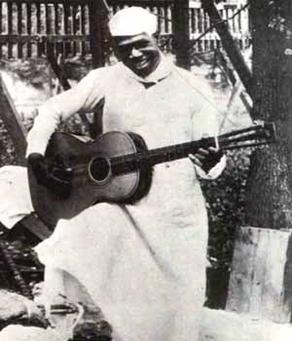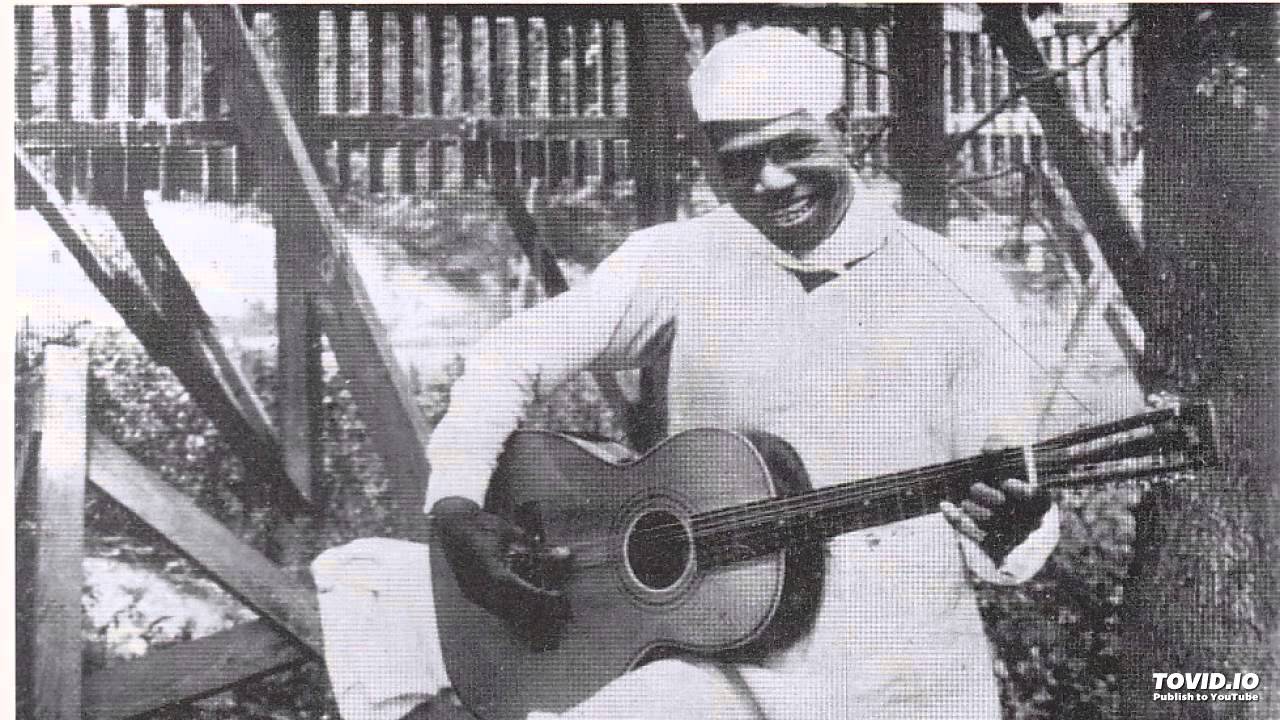Early Life
Barbecue Bob, born Robert Hicks on September 11, 1902, in Walnut Grove, Georgia, was a pivotal figure in the early development of the Piedmont blues style. Raised in a musical family, Hicks was deeply influenced by the rich musical traditions of the rural South. His brother, Charlie Hicks, who later became known as Laughing Charlie Lincoln, was also a talented blues musician. The siblings learned to play guitar from their mother, fostering a lifelong passion for music.
Musical Beginnings
In his teenage years, Hicks moved to Atlanta, Georgia, where he found work at Tidwell’s Barbecue, earning the nickname “Barbecue Bob.” His job as a barbecue cook became intertwined with his musical identity, as he often entertained customers with his resonant voice and masterful twelve-string guitar playing. His deep, powerful vocals combined with his rhythmic fingerpicking style quickly garnered attention in the local music scene.
Recording Career and Success
In 1927, Hicks’s talent caught the ear of Columbia Records talent scout Dan Hornsby, who recorded him under the name “Barbecue Bob.” His debut record, featuring “Barbecue Blues,” was an instant hit and became one of Columbia’s best-selling records of that year. The song showcased his unique blend of ragtime-influenced rhythms and traditional blues structures, marking him as a standout artist of the era.
Barbecue Bob’s success led to a prolific recording career, with over 60 tracks recorded between 1927 and 1930. His music often reflected the themes of daily life, hardship, and the Southern experience, resonating deeply with audiences. Songs like “Mississippi Heavy Water Blues” and “Motherless Child Blues” highlighted his ability to convey profound emotion through simple yet evocative lyrics.
Musical Style and Influence
Barbecue Bob was a master of the twelve-string guitar, a distinguishing feature of his sound. His playing style blended Piedmont fingerpicking with a rhythmic drive that made his music both danceable and deeply soulful. His rich baritone voice added a layer of depth to his performances, making his recordings timeless classics.
Bob’s influence extended beyond his recordings. He played a crucial role in popularizing the Atlanta blues scene, inspiring contemporaries and future generations of blues musicians. His collaborations with artists like Curley Weaver and his brother Laughing Charlie Lincoln further cemented his legacy within the blues community.
Personal Life and Untimely Death
Despite his musical success, Barbecue Bob’s life was marked by personal struggles. The economic hardships of the Great Depression affected many musicians of his era, including Bob. Tragically, his life was cut short when he died of pneumonia on October 21, 1931, at the young age of 29. His untimely death robbed the blues world of one of its most distinctive voices.
Legacy
Though his career was brief, Barbecue Bob’s impact on the blues genre is enduring. His recordings remain influential, offering a window into the early days of the Piedmont blues style. Modern blues enthusiasts and musicians continue to celebrate his contributions, recognizing him as a foundational figure in American blues history.
Barbecue Bob’s music captures the spirit of an era and the soul of a people, ensuring his legacy lives on in the annals of blues history.


Comments are closed